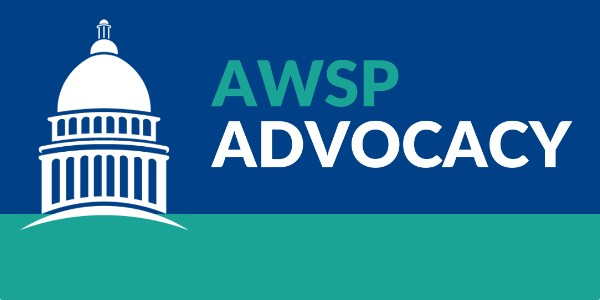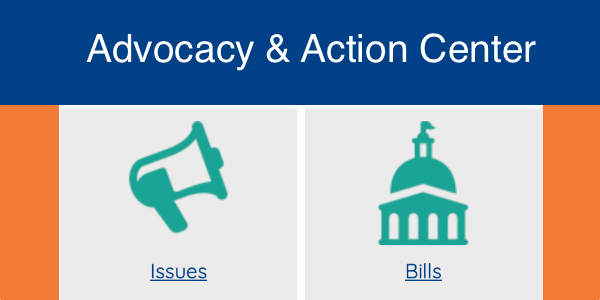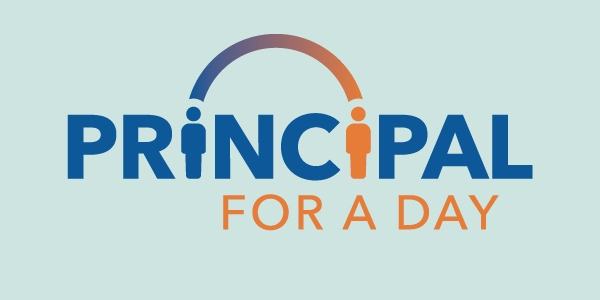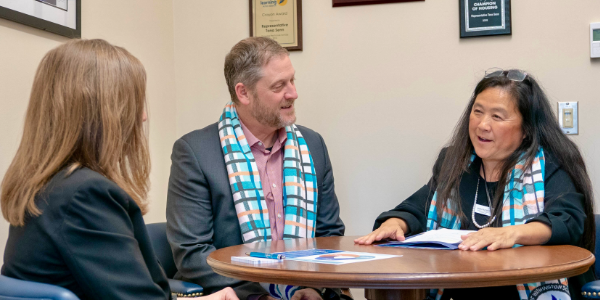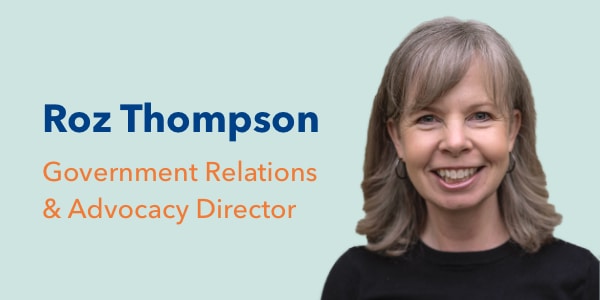As the clock continues to count down to Sine Die, there is a mixture of committee hearings, behind the scenes meetings, and limited floor debate. As mentioned earlier, Feb. 24th is the last day for policy bills to clear committees, and Feb. 28th for fiscal bills to clear. Many committee agendas read “Bills to be determined” as decisions are being made behind closed doors as to what advances. All these actions lead to the March 4th date, which is the last day (5 PM) to act on opposite house bills.
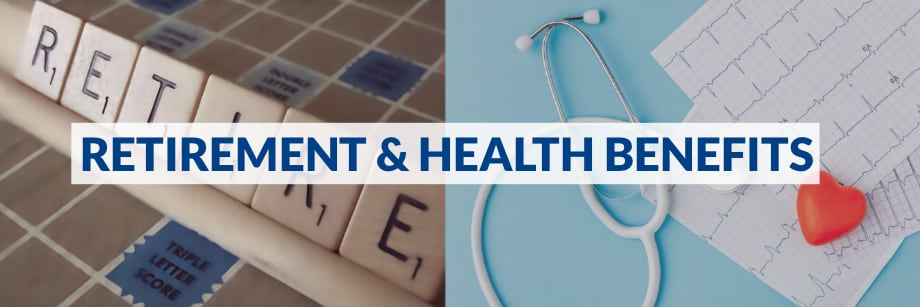
“No man’s life, liberty, or property are safe while the Legislature is in Session.” ~ Mark Twain
“Secrecy is the foundation of politics.” ~ Bing Gordon
As the clock continues to count down to Sine Die, there is a mixture of committee hearings, behind the scenes meetings, and limited floor debate. As mentioned earlier, Feb. 24th is the last day for policy bills to clear committees, and Feb. 28th for fiscal
bills to clear. Many committee agendas read “Bills to be determined” as decisions are being made behind closed doors as to what advances. All these actions lead to the March 4th date, which is the last day (5 PM) to act on opposite house
bills.
As an perpetual reminder, no bill is ever ‘dead’ until Sine Die, and any bill deemed ‘necessary to implement the budget’ (NTIB) remains alive until the bitter end.
Below is a brief report on selected bills.
Retirement Related Proposals
ESHB 1699 | Permitting individuals retired from the public employees’ retirement system, the teachers’ retirement system,
and the school employees’ retirement system additional opportunities to work for a school district for up to 1,040 hours per school year while in receipt of pension benefits until July 1, 2025.
Comment: This bill was scheduled for a hearing, then changed to executive session, then dropped due to a mix up in pension related bills. It remains in the WM Committee awaiting scheduling. Advocates have been asked to lobby the committee members and
their own legislators to urge a hearing. This bill may or may not be NTIB.
EHB 1752 | Adding a Roth option to deferred compensation plans.
Comment: Senate WM held a public hearing before the Senate Ways and Means’ Committee on Feb. 22nd. No further action has been scheduled to date.
SHB 1759 | An act relating to requiring school districts and other public education entities to make information from the department
of health about substance use trends, overdose symptoms and response, and the secure storage of prescription drugs, over-the-counter medications, and firearms and ammunition, available through their websites and other communication resources.
Comment: This bill is in Senate Rules awaiting further action.
HB 1804 | Concerning interruptive military service credit for members of the state retirement systems. Comment: It passed WM and is
before Senate Rules awaiting a pull to the floor calendar.
SB 5676 | Providing a benefit increase to certain retirees of the public employees’ retirement system plan 1 and the teachers’
retirement system plan 1.
Summary: This bill would provide a 3% increase (COLA) not to exceed $110/month for TRS1/PERS1 Plan retirees.
Comment: Both proposed budgets included funding for this COLA. The House Appropriations has scheduled this for executive session on Feb. 24th. (Comment: There is an error in the Senate budget citing the wrong bill number. Staff is working to correct the
error.) According the either budget, employer costs to fund this COLA will rise 0.14 in PERS/SERS rates and 0.27 in TRS.
SB 5726 | Concerning interruptive military service credit for members of the state retirement systems. It expands the definition of
veteran for purposes of veterans’ benefits in state pension systems, legal assistance, scoring criteria on civil service exams, and other programs, to include members that were awarded an expeditionary medal.
Comment: Awaiting scheduling before House Appropriations.
Other Areas Of Potential Fiscal Impact (Often, Unfunded) To Districts
HB 1613 | Concerning shared reporting responsibilities for both the paid family and medical leave and the long-term services and supports
trust programs to clarify that information collected from employer reports shall remain private.
Comment: This bill has been moved to Senate Rules awaiting action to move it to the floor calendar.
SHB 1617 | Aligning state and school holidays. The legislature intends to clarify that Juneteenth, like all other state legal holidays,
is a school holiday on which school may not be taught.
Comment: This bill is in Senate Rules waiting to be moved to floor calendar.
SHB 1644 | Expands allowable uses of school districts’ transportation vehicle funds to include purchase, installation, and repair
of vehicle charging stations and other zero-emission fueling stations, and feasibility studies to transition to electric or zero-emission vehicles for pupil transportation •
Comment: The Senate Education Committee passed the bill.
SHB 1759 | Requiring school districts and other public education entities to make information from the department of health about substance
use trends, overdose symptoms and response, and the secure storage of prescription drugs, over-the-counter medications, and firearms and ammunition, available through their websites and other communication resources.
Comment: This bill is before Senate Rules waiting to be moved to floor calendar.
ESHB 1795 | Makes void and unenforceable provisions in agreements between an employer and employee that prohibit the disclosure of
conduct that is illegal discrimination, harassment, retaliation, a wage and hour violation, or sexual assault, or that is against a clear mandate of public policy, occurring in the workplace.
Comment: This bill passed the Senate Labor Committee.
EHB 1837 | This bill repeals the restriction on the regulation of work-related musculoskeletal disorders and ergonomics, overturning
a 2003 voter approved initiative barring L & I from developing ergonomic regulations.
Comment: A reminder that this bill took 10 hours of House floor debate into the wee morning hours to barely pass 50/48. It is scheduled for a executive session before the Senate Labor Committee on Feb. 24th .
SHB 1902 | This bill provides for reopening a workers’ compensation claim when the provider fails to submit the application.
A claimant may receive compensation and other benefits more than 60 days before submission of the reopening application when the following applies: the application was not received by L&I or the self-insurer within 60 days due to a failure of
the provider; and • the worker demonstrates that the worker information page was completed and submitted to L&I, the self-insurer, or the provider within 30 days of provision of the relevant medical services. • The L&I or self-insurer
must provide notice of the submission deadlines on any forms it provides for use as claim reopening applications.
Comment: The House Labor Committee moved it out via executive session on Feb 23rd.
E2SSB 5155 | Modifies the accrual date for interest on judgments founded on the tortious conduct of individuals and entities other
than public agencies from the date of entry of judgment to the date the cause of action accrues.
Comment: The House Civil Rights and Judiciary Committee on this bill in executive session on Feb. 22nd. As mentioned repeatedly this bill has tremendous financial implications for school district liability costs.
SB 5326 | An act relating to health and pension benefits for school bus drivers employed by private nongovernmental entities.
Comment: This bill is on the Senate “X” file which generally means it is ‘dead’ and no further movement is expected.
SB 5539 | Concerning state funding for educational service districts. This bill requires that state funding be provided to each educational
service district (ESD) for the employer cost of school employees’ benefits for employees of the ESD that are covered by collective bargaining.
Comment: This bill is scheduled for executive session before House Appropriations on Feb. 24th.
SSB 5564 | Protecting the confidentiality of employees using employee assistance programs.
Comment: This bill is before House Rules awaiting further action.
ESSB 5628 | Concerning cyber harassment, addressing concerns in the case of Rynearson v. Ferguson, and adding a crime of cyberstalking.
Comment: The House Public Safety Committee had executive session on this bill Feb. 24th.
2SSB 5649 | This bill as amended provides that an allowable purpose for family leave is any leave taken by an employee during the seven
calendar days following the death of the family member for whom the employee would have qualified to take medical leave for the birth of their child or would have qualified for family bonding leave. Specifies that leave taken by certain employees
in the first six weeks after giving birth must be medical leave unless the employee chooses to use family leave. Expires the collective bargaining agreement exception contained in the Paid Family and Medical Leave (PFML) program. Requires the Employment
Security Department to publish a list of employers with approved voluntary plans on its website. Contains provisions on short- and long-term actuarial services assessing the financial condition of the PFML program to maintain financial stability of
the family and medical leave insurance account. Creates a legislative task force on PFML program premiums and requires a Joint Legislative Audit and Review Committee report.
Comment: The House Labor Committee passed this out of executive session on Feb. 22nd.
ESSB 5761 | Concerning employer requirements for providing wage and salary information to applicants for employment.
Comment: The House Labor Committee on 2/22 passed it out by executive session.
ESSB 5873 | Concerning unemployment insurance, family leave, and medical leave premiums. This bill decreases the maximum Unemployment
Insurance (UI) social cost factor for 2022 and 2023 and sets a maximum UI rate class for the purposes of the percentage of the social cost factor to be paid by small businesses in 2023.
Comment: It would lower the social tax by about 30% next year and continue this trend into the following year. WR testified in support. The Paid Family and Medical Leave component was eliminated. It is before House Rules awaiting further action.



